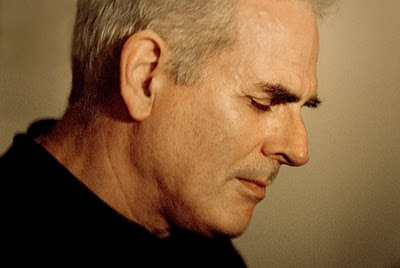 In reaction to a roundtable discussion on the subject of copyright on The Hooded Utilitarian blog, NYC composer Jonathan Newman hits several nails squarely on the head:
In reaction to a roundtable discussion on the subject of copyright on The Hooded Utilitarian blog, NYC composer Jonathan Newman hits several nails squarely on the head:
I realize how mercenary this sounds, but how about making art AND money? Ultimately I’m unclear how copyleft (or free culture in general) can maintain my middle class income. As far as I can tell, the current copyright laws are what do that.
All that being said, I’m actually a fan of Free. I give away content like crazy on my website…mp3 downloads…score of the pieces as PDFs I released on KDP, etc. I give away CDs, even commercial ones, like candy. I give away many (expensive to produce) printed scores. Because I do believe that giving away significant content–not just useless crap, but stuff people can use–in many ways does help create that “fan base” one hears the astute bands and rock stars talk about … those fans that downloaded the album for free, but who later on shell out 300 bucks to go to the tour show and buy the $25 t-shirts. Which right there crystallizes the line for the Free argument. You don’t see “Pay what you want” Radiohead (I’m a fan) letting their devoted following into the show for free. (Or do you? I don’t really know.)
So among this noise, some content is always controlled by the owner. It’s not all free, it’s just a question of what content is deemed not free. For me, it’s the performance materials. That’s the paper (maybe someday it won’t be, I’m looking at you iPads) musicians rehearse and perform from. I rent it, I sell it, I control it. Nothing drives me more bat-shit crazy than seeing other composers give away their stuff. A website full of scores and parts… “Come play my music! I won’t charge! I just want you to play it to Get My Name Out There!” Well, a) I hope you have another job, b) you just made mine a lot harder, and c) the end user (who, sure, now knows your name) thinks your stuff isn’t even worth the paper it’s printed on.
Check out the entire post here.
 After moving from New Orleans to New York City, I managed to stay connected to keyboardist/composer Lawrence Sieberth thanks to the Internet and email, keeping him posted on my music activities. My first memory of Larry is hearing him on piano performing his 1995 tribute concert Booker and Black at the Contemporary Arts Center which celebrated the music of New Orleans musicians pianist James Booker and drummer James Black with projected visuals by artist Jon Graubarth (Jon created the artwork for my CD
After moving from New Orleans to New York City, I managed to stay connected to keyboardist/composer Lawrence Sieberth thanks to the Internet and email, keeping him posted on my music activities. My first memory of Larry is hearing him on piano performing his 1995 tribute concert Booker and Black at the Contemporary Arts Center which celebrated the music of New Orleans musicians pianist James Booker and drummer James Black with projected visuals by artist Jon Graubarth (Jon created the artwork for my CD 




 The 15th Other Minds Festival kicks off this evening, offering San Francisco a three-day immersion in contemporary music from around the world. One of the locals headlining this year is
The 15th Other Minds Festival kicks off this evening, offering San Francisco a three-day immersion in contemporary music from around the world. One of the locals headlining this year is